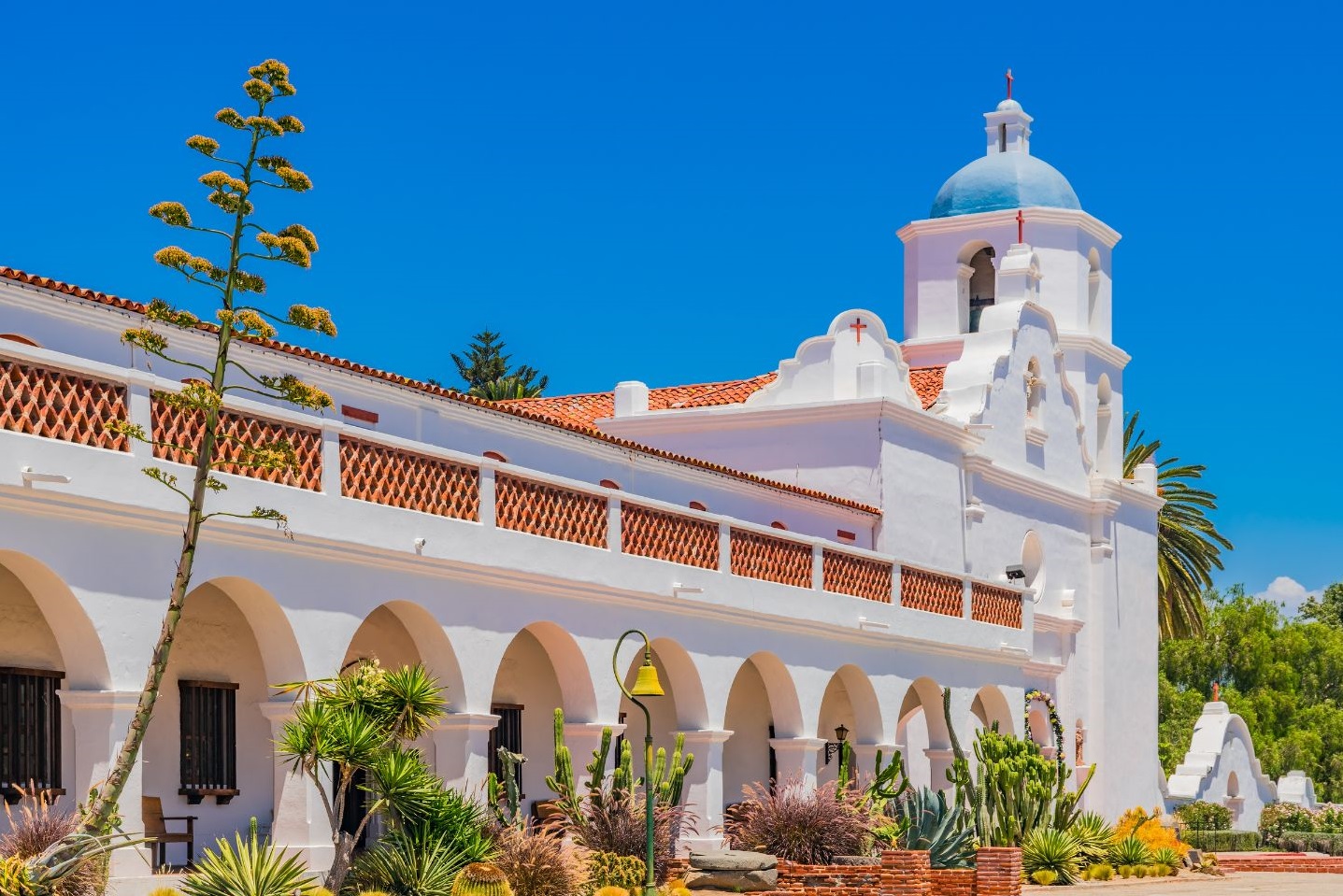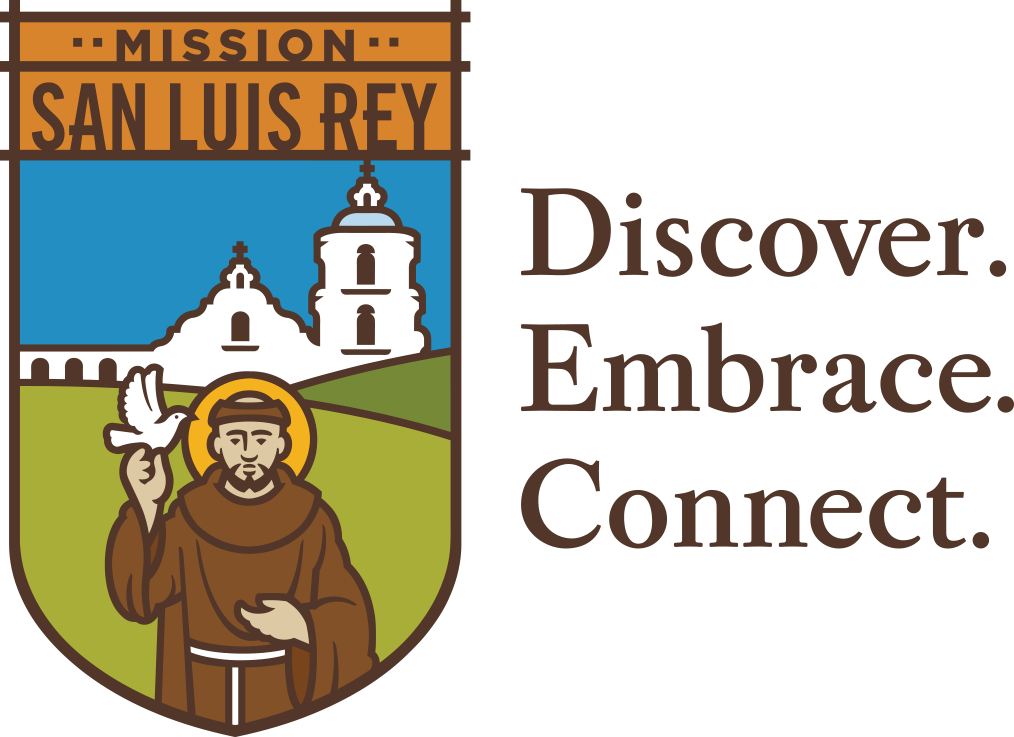Quiet and Silent Retreats in California: What They Are and Where to Go
In a world filled with constant noise, the idea of stepping away into silence may feel unfamiliar but deeply needed. A quiet or silent retreat offers time apart to be still, reflect and listen not just to your surroundings, but to your own heart and to God.
These retreats aren’t about isolation or discomfort. They are about creating intentional space where silence becomes a source of renewal, not emptiness. If you are seeking clarity, peace, or a more grounded relationship with God, a quiet retreat can be a transformative experience.
At Mission San Luis Rey in Oceanside, California, guests are invited into sacred silence through silent retreats that offer space for stillness, prayer and spiritual direction. Surrounded by gardens, chapels and centuries of Franciscan tradition, the Mission Retreat Center provides a peaceful refuge for those called to step away and listen.
Table Of Contents:
What Is a Quiet or Silent Retreat?
The Purpose of Silence in a Retreat
Quiet Retreat vs. Silent Meditation Retreat
Who Should Consider a Quiet or Silent Retreat?
What to Expect on a Quiet or Silent Retreat
How to Prepare for a Silent Retreat
What Is a Quiet or Silent Retreat?
A quiet or silent retreat is an intentional time of silence, set apart from daily responsibilities, conversation and digital noise. It creates space for rest, reflection and prayer without the usual interruptions of modern life. These retreats are not about isolation but about listening - listening to God, to your inner voice and to what may be stirring beneath the surface.
Unlike more structured group retreats, quiet or silent retreats remove the need to speak, schedule or perform. Some may include optional spiritual direction or suggested reflections, but the heart of the experience lies in stillness. Meals may be taken in silence. Walks become meditative. The chapel or garden becomes a space not for talking, but for simply being.
At their core, quiet retreats are about presence. Without conversation or noise, attention turns inward and upward. Many guests say that even a few days in silence helps them rest more deeply, pray more freely and return home with renewed clarity and peace.
The Purpose of Silence in a Retreat
Silence is not an absence; it is a presence. In a retreat setting, silence becomes the space where distractions fall away and the soul begins to speak. Many people don’t realize how much external noise shapes their inner life until they spend intentional time without it.
In Christian tradition, silence has long been considered essential for prayer and spiritual clarity. Jesus withdrew to quiet places to pray. The early Church was shaped by desert fathers who turned to silence as a way to hear God more clearly. Monastic communities continue this practice today using silence to deepen their awareness of God’s presence in all things.
During a silent retreat, the absence of conversation opens a different kind of communication. Between you and God, between you and your deeper self. You may begin to notice thoughts, feelings or spiritual insights that were previously buried beneath busyness.
Silence also softens the need to explain or produce. It invites rest and simplicity. In time, it creates space not just for answers, but for stillness itself to become meaningful.
Quiet Retreat vs. Silent Meditation Retreat
While the terms “quiet retreat” and “silent retreat” are often used interchangeably, not all silent retreats are the same. One key distinction lies between Christian silent retreats and meditation retreats rooted in other traditions, such as Buddhism or secular mindfulness programs.
A silent meditation retreat, such as Vipassana or Zen retreats, often emphasizes breathwork, posture, mindfulness techniques and long periods of seated meditation. These retreats are typically silent from start to finish, sometimes lasting several days with little to no verbal interaction and are rooted in non-Christian traditions.
In contrast, a Christian quiet or silent retreat, like those at Mission San Luis Rey, is centered around prayer, Scripture, reflection and sacred stillness. Silence serves as a tool for deepening one’s relationship with God, not just calming the mind but opening the heart. While periods of meditation may be included, the primary focus is spiritual listening, rest and prayerful awareness.
Both types of retreats offer value, but the difference is in the purpose and spiritual foundation.
Benefits of a Silent Retreat
The benefits of a silent or quiet retreat often extend far beyond the time spent in silence. Many people arrive feeling scattered, tired or spiritually distant - and leave with a renewed sense of peace, purpose and presence.
Silence itself becomes not just the backdrop of the retreat, but the practice that opens the way to spiritual clarity.
Some of the most common benefits include:
- Mental and emotional clarity - Without constant input from conversations, devices, or tasks thoughts settle. People often gain insight into personal challenges, unresolved questions or spiritual direction.
- Deeper connection with God - Silence removes the pressure to perform or pray with words. It creates space to simply be with God, listen and notice how God may already be speaking through stillness.
- Rest and renewal - Physical rest is part of the retreat, but so is spiritual rest - stepping back from decision-making, expectations and noise.
- Reduced stress and overstimulation - Even a short retreat can help calm the nervous system and offer a break from overstimulation and constant distraction.
- Groundedness and simplicity - Silent retreats remind us how little we need to feel spiritually nourished. Prayer, stillness, good food and sacred space are often more than enough.
These benefits may not appear immediately. Some surface during the retreat; others unfold afterward. But almost everyone who attends a silent retreat leaves with a deeper sense of presence within themselves and in their relationship with God.
Who Should Consider a Quiet or Silent Retreat?
A quiet or silent retreat isn’t reserved for experienced retreat-goers or those living in religious communities. In fact, it’s often most impactful for people who feel disconnected, overwhelmed or spiritually restless.
You might consider a silent retreat if you:
- Feel spiritually dry or distant from your usual prayer life
- Are going through a major life transition such as a career shift, loss or relationship change
- Spend your days caring for others and rarely have time to reflect on your own well-being
- Are discerning a new direction or trying to make a meaningful decision
- Long for space to be alone with God without pressure or distractions
- Are simply tired of everyday noise
Quiet retreats are also ideal for those who don’t need programming or events to fill their time. If you’re comfortable with solitude or open to learning how to sit with silence a personal retreat can offer unexpected clarity and renewal.
At Mission San Luis Rey, you don’t need to be Catholic or experienced in silence. The Retreat Center is designed to support first-time guests and returning visitors, offering peaceful spaces and gentle support for wherever you are on your spiritual path.

What to Expect on a Quiet or Silent Retreat
While each retreat center has its own rhythm and setting, most quiet or silent retreats follow a gentle, simple pattern. The goal is not to fill the day with activity, but to create space for prayer and stillness. If this is your first silent retreat, knowing what to expect can help ease uncertainty and prepare you for a meaningful experience.
Common elements of a silent retreat include:
- Unstructured time - Quiet retreats are designed for personal reflection. You may spend your time journaling, praying in the chapel, walking the grounds or resting. There are no meetings to attend or agendas to follow unless you’ve arranged for spiritual direction.
- Peaceful spaces - Access to gardens, chapels, reading rooms and outdoor areas gives you room to slow down. The environment itself supports stillness and prayer.
- Simple meals - Meals are typically provided in a shared dining area. Eating quietly gives you the chance to be more present and reflective without the need for conversation.
- Spiritual direction (optional) - Some retreatants choose to meet with a spiritual director during their stay. This can be arranged in advance and offers a helpful way to reflect more deeply on your experience.
- Respect for quiet - While you’re not isolated, everyone around you is observing the same stillness. There’s a shared sense of respect for the silence, which often creates a peaceful, supportive atmosphere.
How to Prepare for a Silent Retreat
Preparing for a quiet or silent retreat doesn’t require spiritual expertise, just a willingness to be present. Still, a little preparation can help you settle in more easily and make the most of the experience.
Consider these practical steps before your retreat:
- Set an intention - Take time to reflect on why you're going. You don’t need to arrive with a goal but having a sense of what you’re hoping to notice, release or pray through can give your silence a deeper focus.
- Leave space in your schedule - Avoid planning something immediately before or after the retreat. Give yourself room to arrive unhurried and to return home gently.
- Pack simply - Bring comfortable clothing, a journal, your Bible or spiritual reading and anything that supports prayer or reflection. Leave phone, tablet, smart watch or distractions behind.
- Prepare for silence - If you’re new to silence, it may feel uncomfortable at first. That’s okay. You don’t need to “do” anything with the quiet, just stay with it. Let it become familiar.
- Be open to whatever comes - Every retreat is different. You may experience peace, resistance, rest or clarity - or all of the above. Let the retreat unfold naturally without the need to control the outcome.
The most important preparation is showing up with an open heart. Everything else will take shape once the silence begins.
Book Quiet Retreats in California at Mission San Luis Rey
Mission San Luis Rey offers Quiet Days - peaceful, one-day retreats for those who want to step away from noise and reconnect with God in silence. Held in the serene setting of the retreat center, these days invite you to pause and rest without the pressure of conversation or activity.
Each Quiet Day includes a private room for personal use, time for prayer and silence, access to the Mission’s sacred grounds and a simple midday meal. You’re encouraged to bring a journal or spiritual reading, and to let the quiet guide your experience.
If you're looking for a longer retreat, the Mission also offers overnight personal retreats with the same emphasis on stillness and rest. Spiritual direction can be arranged for guests who want additional guidance during their stay.
View upcoming Quiet Day dates or explore personal retreat options at the Old Mission.
Frequently Asked Questions
If you're new to the idea of a quiet or silent retreat, it's natural to have questions. Here are answers to some of the most common concerns.
Yes. Spiritual direction is available by request for both day and overnight retreats. Staff are also available if any practical need arises.

